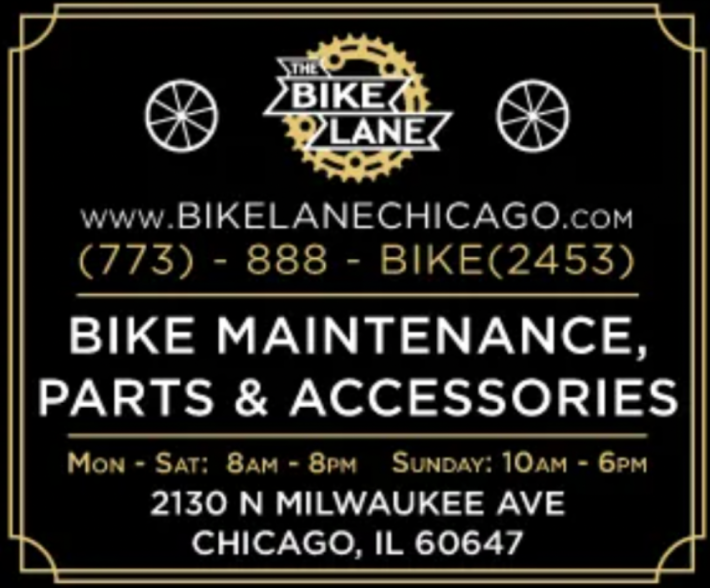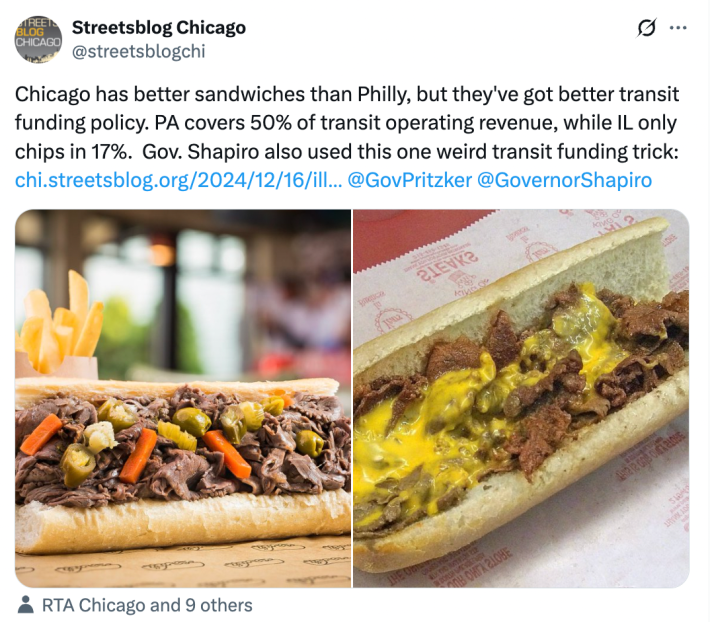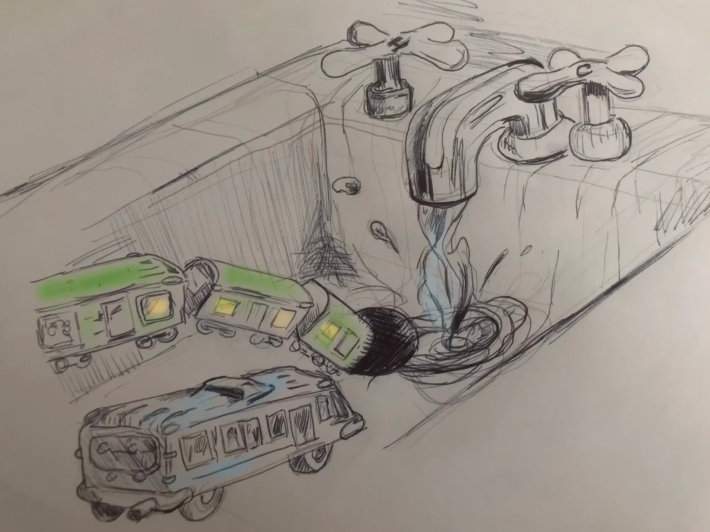
I'm confident that the generally car-centric folks on the Chicago Tribune editorial board deserved the spanking I gave them on Friday for their rather arrogant editorial about our region's looming $770 million total transit budget gap. "Chicago’s transit agencies want you to panic," the headline stated. "They don’t explain the whole truth."
The Tribune piece portrayed the agency leaders as a bunch of nervous nellies, and implied we might not actually have a crisis on our hands next year, in the form of 40 percent less public transportation service. They called the situation as a "so-called" emergency, and used patronizing language to describe those of us who are rightly freaking out about it, calling us "panicked," "frantic," and "begging legislators for money."
They also failed to acknowledge the massive State funding disparity between the Chicagoland transit system (17 percent of operating revenue) and peer cities like New York (28 percent), Boston (44), and Philadelphia (50).

Kirk Dillard, board chair for the Regional Transportation Authority, which oversees the CTA, Metra, and Pace, pushed back appropriately in a letter to the Tribune. "Warning riders and lawmakers about an impending fiscal cliff isn’t 'panic-stoking' – it’s responsible leadership," he noted. "The editorial minimizes the urgent reality facing our region."
In my piece on Friday, I acknowledged that the Trib made a few valid points in the editorial. For example, yes, the $5.7 billion, 5.5-mile Red Line Extension is wildly expensive. (Although the editorial initially said it's $5.1 billion, but then later put that number at $5.75 billion – a sure sign of quality journalism!)
And, indeed, CTA has serious problems with deferred maintenance of existing infrastructure, so it's worth asking whether it really makes sense to build miles of additional rail corridor. And, sure, the agency should be looking at ways to increase income besides fares, such as enabling more transit-oriented development on land it owns.
One other legitimate point the Tribune made, which I decided to postpone talking about until this follow-up article, is that the Chicago region's funding and service problems can partly be attributed to governance issues. The editorial pointed to a recent report by McKinsey & Company consulting firm, "Finding a route to fiscal stability for US transit agencies."
That McKinsey document states, "Boosting non-farebox revenue, achieving more efficient results from operating budgets, and making better-informed choices about capital expenditures can all be ways to help strengthen transit agency balance sheets — while also accelerating the service availability, frequency, reliability, and quality improvements that riders value the most."
Part of the reason for Chicagoland's bus and rail problems may be too many cooks in the train galley. We have four agencies, four chiefs, and 47 total board members, which can make it difficult to coordinate region-wide planning, policy, and fares. As such, some State lawmakers have proposed legislation to fuse the RTA, CTA, Metra, and Pace into a single a Metropolitan Mobility Authority.

One of them is Representative Kam Buckner (D-26th), whose recent tweet about the need for more disciplined agency leadership, and for less money to be spent on transit funding marketing campaigns, is quoted in the Trib editorial. He told me that, contrary to what the paper implied, "It’s valid for the agencies to raise concern" about the impending funding cliff.
However, Rep. Buckner said that in order for State legislators like himself to support earmarking more money for transit, governance reform has to be part of the puzzle. "We’ve been here before, in 2008, and in 1983, and in 1974," he said. "All three efforts prioritized immediate financial relief, while kicking long-term governance modernization down the road, hence today’s structural dysfunction. We responded to transit crises with cash-centric solutions, and look where it got us – back in crisis. If we don’t fix the structure, we’re just recycling the problem."
Rep. Buckner said he's even more frustrated by what he calls the "tone-deaf" way the message is being delivered. That includes the RTA spending "up to a million dollars" on an ad campaign about the fiscal cliff, and Metra paying upwards of $4.65 million to lobbyists to work on the issue. "[That] doesn’t exactly build trust when you’re saying you’re broke," he said. "If the RTA were functioning the way it should, we’d have already seen even a few small reforms to shore up public confidence. Instead, we’ve seen more of the same."
"If you want to engage the public in your pursuit, start by actually engaging the public," Rep. Buckner concluded. "Hold town halls, host listening sessions, talk to riders, and above all, run better service. That’s what earns buy-in, not ad campaigns."
The Tribune also quoted an article about the Red Line Extension cost by transit advocate and environmental policy analyst Nik Hunder, from the website A City That Works (which also runs pieces by SBC contributor Richard Day.) Hunder told me he agrees that in the recent Tribune article, "the editorial board doesn't do a good job at explaining and evaluating the state of transit."

However, Hunder said the Trib is correct that, at least when it comes to the Chicago Transit Authority, agency leaders "don't explain the whole truth." The CTA is "rarely forthcoming, frequently gaslights riders expectations, and is overall uncooperative," he told me. "By comparison, Metra has been fiscally responsible and actively seeks riders' input with a history of showing that it followed through."
"But there is no other option [for these agencies] than sounding the alarm," Hunder added. "Right now, to non-transit commuters, it seems unimportant and irrational to find $1.5 billion [the amount sought to save and improve local transit] at the State level, but Chicago's economy relies on transit. Without it, regional GDP decreases imedately and communities become even more disconnected from each other. Decades of failed urban renewal projects have made the latter far too common in Chicago."
"We need to fully fund transit, but it needs to come with some expectations," Hunder concluded, echoing Rep. Buckner. "If I'm helping provide the $1.5B agencies seek, I want some honestly attached to it, no matter how bad the outlook is."
Our top priority should be ensuring that Springfield addresses the fiscal cliff by the end of this month's legislative session. The alternative would be austerity measures and dystopian service cuts next year.
On the other hand, maybe we should also take advantage of this opportunity to overhaul local transit governance. That would be heeding the sound advice of problematic ex-mayor Rahm Emanuel: "You never want to let a serious crisis go to waste."
Read the Tribune editorial here.
Read RTA Board Chair Kirk Dillard's response here.
Read Streetsblog's previous rebuttal of the Trib piece here.

Did you appreciate this post? Streetsblog Chicago is currently fundraising to help cover our 2025-26 budget. If you appreciate our reporting and advocacy on local sustainable transportation issues, please consider making a tax-deductible donation here. Thank you!





